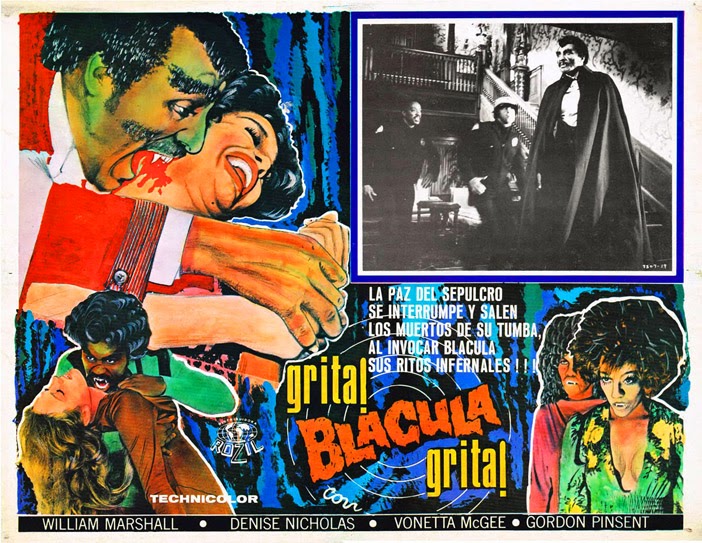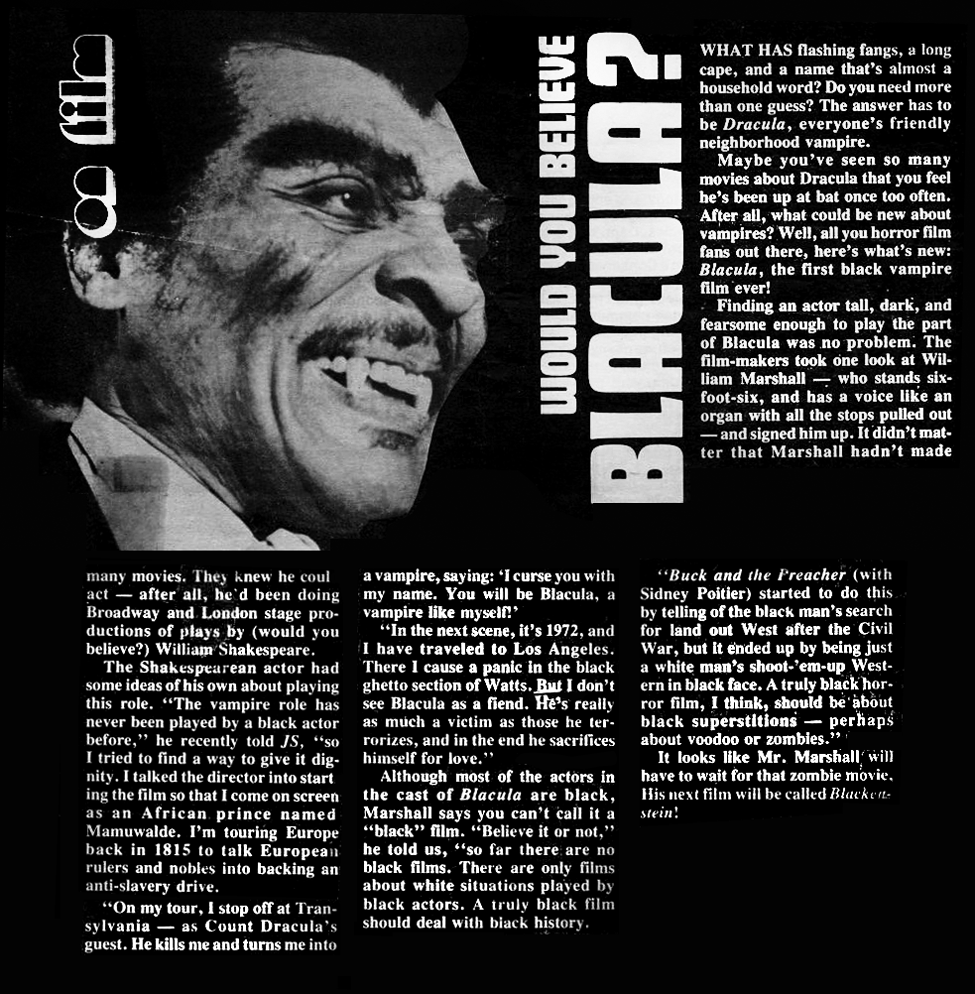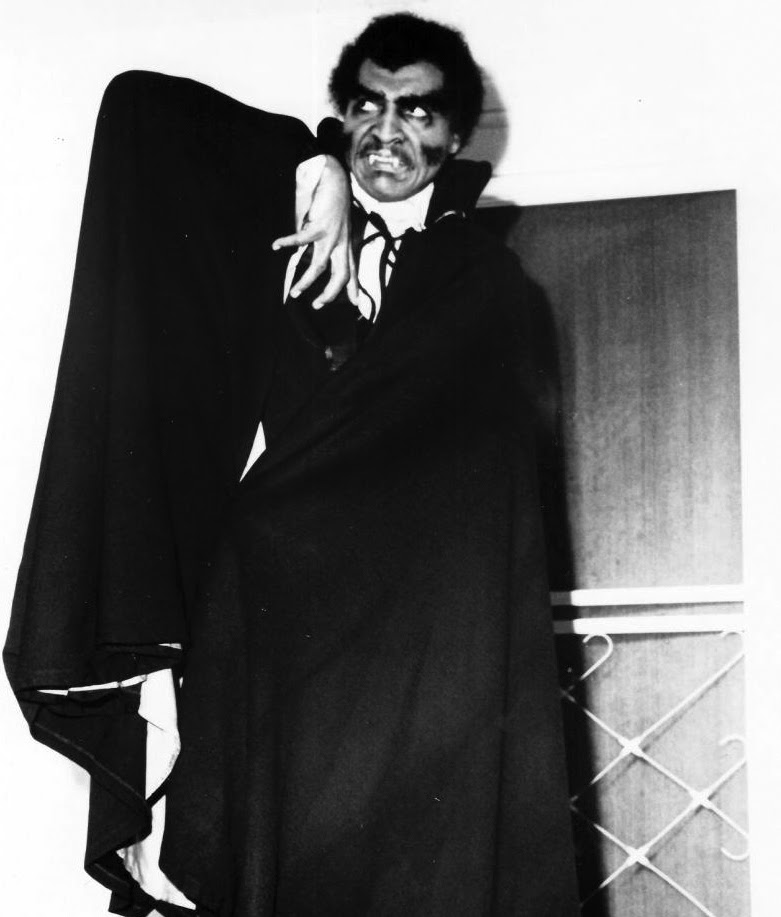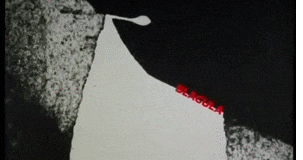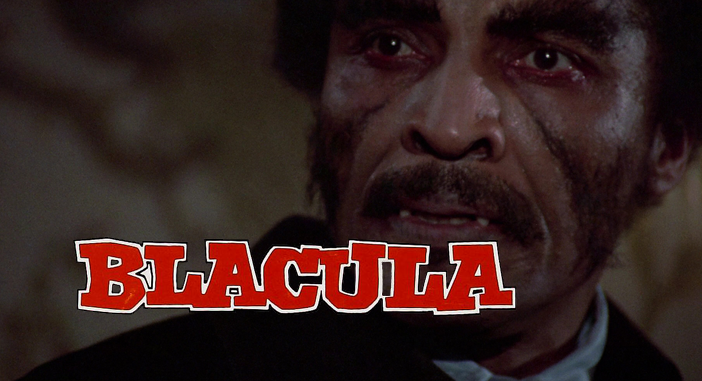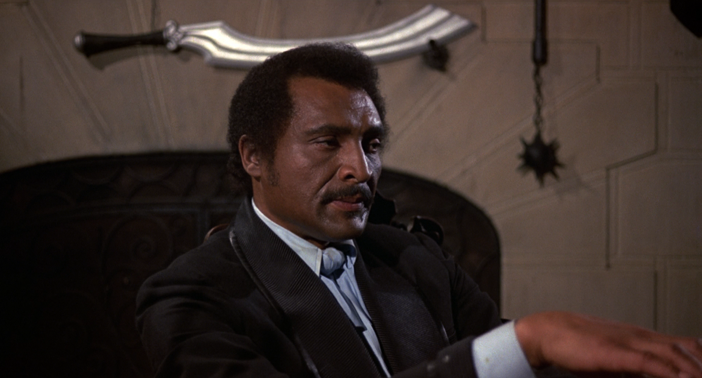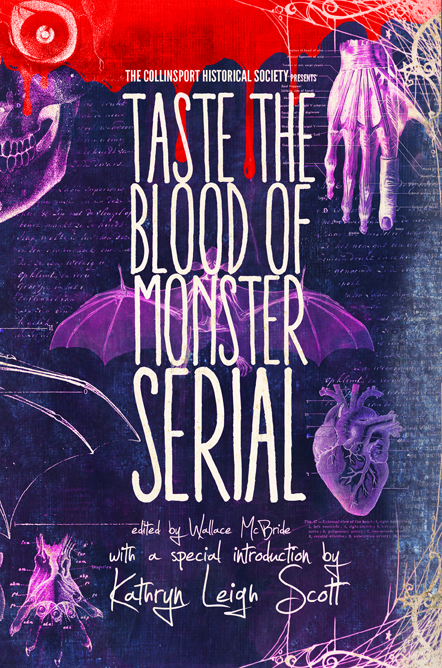By PATRICK McCRAY
BLACULA deserves better.
It pains me to say that about any Samuel Z. Arkoff production, but I mean it. The story, acting, dialogue, and politics (treatment of gay men notwithstanding) are all thoroughly worthy of a ROSEMARY’S BABY-level of budget.
And title.
I really hate the title.
I understand it. I mean, if the only thing you have to sell with a movie is the fact that it’s the “black version” (whatever that exactly means) of some established property, okay. I realize that most of the blaxploitation films of that era had some sort of pun or allusiuon to black or brown in it. If the movie’s dreck, then yeah, sure. That high concept is all they have to sell. I like sensationalism as much as the next guy.
Maybe more. I’d be happy to just watch a slideshow of posters.
BLACULA, however, is a genuinely good movie by any measure.
When Wallace mentioned this book, we writers all threw out movies we wanted to adore, and I tossed my hat in with
BLACULA. I hadn’t seen it in twenty-plus years, but I recalled it being a lot of fun and in keeping with my wacky sensibilities. I remembered it being decent, but not nearly this well made. Nor thoughtful.
Is the title character even a monster? Good question. He wants to survive. He wants the reincarnation of his wife to remember him, become a vampire, and follow him through time. (Tell me if that sounds familiar.) He has to deal with the fact that his feeding creates a viral litany of vampires at his command, but that seems to be the result of his diet more than anything else. So, what we have is a guy trying to survive and win the girl while fighting a contageous illness beyond his control. That’s barely enough vampire to justify the film’s Van Helsing, Dr. Gordon Thomas (Thalmus Rasulala).
In 1780, Prince Mamuwalde (William H. Marshall) and his wife, Luva (Vonetta McKee), have left their African kingdom to beseech Dracula’s help to battle the slave trade. This doesn’t go as planned. Dracula (Charles Macaulay) — predictably — thinks the slave trade is just dandy, and begins hurling statements that might as well be racial epithets. Prince Mamulwalde politely excuses himself, but Dracula, now wound up like a Klansman on David Dukes’ birthday, decides to punish him for his dignity and restraint. He transforms Mamuwalde into a vampire, locks him in a coffin, and curses him to share his name for all eternity. He dubs him, “Blacula.”
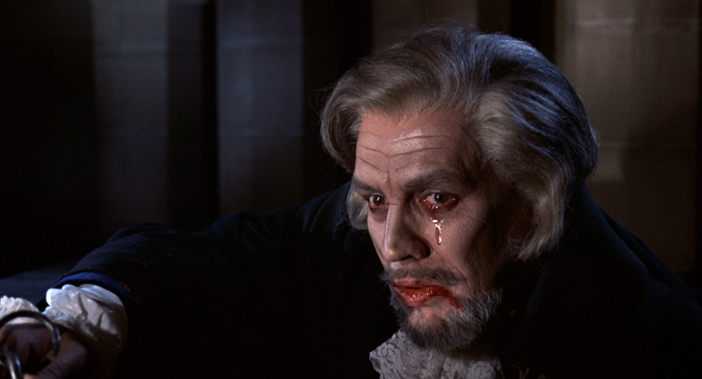 |
|
Okay, now this is one of the only two places where the movie loses me. Dracula curses Mamuwalde with his name, dubbing him “Blacula.” But Dracula’s name is Dracula. So, does that mean that Dracula was actually Blacula? In that case, was everyone mispronouncing it? Or was Dracula a very pale African? But then, he wouldn’t be Blacula but rather Verypaleafricanula.
Sealed away for freshness, Barnabas Collins style, Mamuwalde goes into suspended animation until two interior decorators in the twentieth century buy Dracula’s castle and all of the contents (including the coffin of Mamuwalde) and ship it to America. This is the film’s second moment of clunkerhood. The interior decorators are the sort of flamboyant and effeminate gay men that Norman Lear would have pitted against Archie Bunker. It’s an outrageous stereotype, and seems jarringly hypocritical to 21st century eyes. After all, this is a movie where stereotypes get challenged. In a very political movie, their presence is a stark reminder of what was and was not widely considered protected under the label of civil rights.
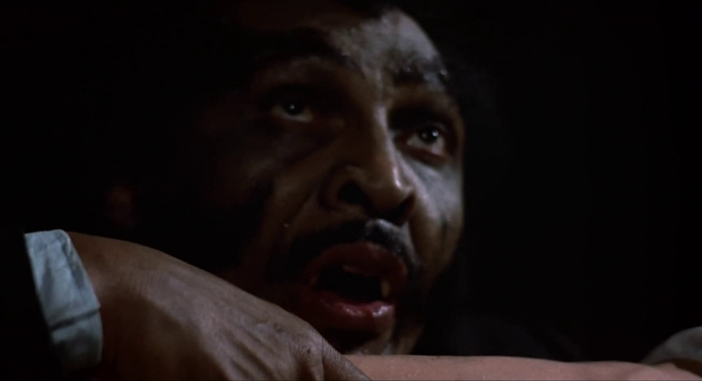
After being awakened, Mamuwalde retains his suave appearance, transforming into a more ferocious, muttonchopped form only when in a blood frenzy. Almost immediately, he encounters the modern day reincarnation of his wife. So that I can talk about that, I’ll fast forward. She’s actually interested! It’s that pesky do-gooder, Dr. Thomas who just has to spoil everyone’s good time. Cat and mouse, etc, etc. Hey look, it’s
Elisha Cook, Jr, with a hook for a hand! Cool! Anyway, when “Blacula’s” re-vampirized reincarnated wife is destroyed, he can no longer go on (un)living. Heartbroken, he ventures into the sun and dies.
Observation. If you ever want to get reincarnated, find a vampire and become their one, true love. Pow. Problem solved. If Dan Curtis and every single person whoever subsequently ripped him off taught us anything, it’s that surefire route to a second life. Yes, friends, it’s just that easy.
So, what works in the film?
Damned near everything. All three primary performers — Marshall, McKee, and Rasulala — deliver focused, disciplined turns. There’s often an arch style of performance that creeps into horror. While it’s endlessly fun to watch, it often eclipses the sense of truth that can exist in the world of the film. None of the leads in
BLACULA are leaden, and all rise to Marshall’s level of gravitas, lending an unusual degree of believability to the movie. In a number of the scenes, I feel more like I’m watching Arthur Miller being performed than, well, a movie called
BLACULA. My theory with this is racially oriented. In that era (not that much has changed), there were so few acting opportunities for African Americans that I feel that none could be wasted. Actually, when I think back on blaxploitation films in general, the acting is never a weak spot.
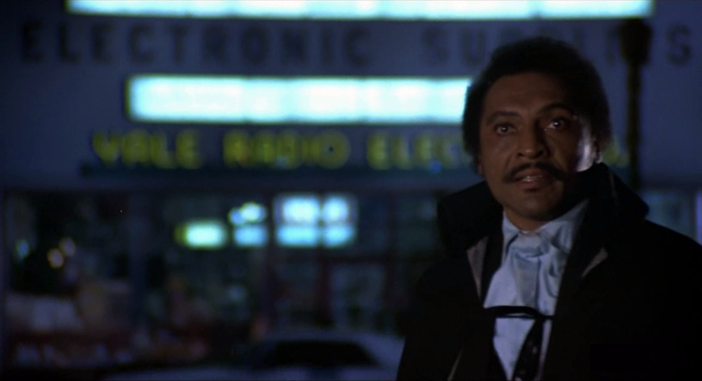
And no discussion of this is complete without additional praise going to William Marshall, himself. Mamuwalde’s needs are understandable and direct, so he’s a difficult character to dislike. How much of that comes from the film’s lead? Some? All? Marshall begins the film with a regal sense of dignity that makes James Mason look like Alfred Doolittle. Transformed into “Blacula,” he loses almost none of that. I kept expecting him to do Extra Menacing Things, but that’s not really the case. I don’t know if I’d call him a kinder, gentler vampire, but Mamuwalde seems to be a fairly goodhearted problem solver. He’s not mindraping women into following him. There’s no sadism. He just seems to want his wife back. He just happens to be a vampire. If that helps him, fine. The character reads as if the writers studied the best part of Jonathan Frid’s Barnabas and decided to put it on screen. In my HOUSE OF DARK SHADOWS essay, I argue that Team Curtis could have replaced Jonathan Frid with the right actor and kept on going strong. An actor with Marshall’s qualities is exactly what I meant. In thinking of it, Marshall may have made a better Barnabas than Frid.
Overall, Mamuwalde is as much a role model as he is a monster. And he meets his match quite aptly in Rasulala’s Gordon Thomas. It’s a duel of intellectual-vs-intellectual. That’s refreshing now. I would imagine it was even more welcomed in 1972. It was certainly not wildly common in any exploitation cinema, regardless of race.
It was always cool to see Marshall as
the King of Cartoons for Pee Wee and as Doctor Daystrom, father of the
Federation’s most ultimate computers. In reflecting on
BLACULA, it’s a shame that there was not more high-profile work for him.
At the same time, that rarity makes BLACULA all the more special.
PATRICK McCRAY is a comic book author who resides in Knoxville, Tenn., where he's been a drama coach and general nuisance since 1997. He has a MFA in Directing and worked at Revolutionary Comics and on the early days of BABYLON 5, and is a frequent contributor to The Collinsport Historical Society. You can find him at The Collins Foundation.

